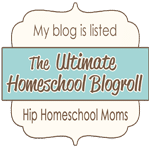Today's Social Studies Focus
On this fine Thursday, we are covering Current Events. For us it goes deeper than the local news though.
Necessary Evils
I don't want my children to know of certain evils in the world until it is absolutely necessary. Despite our best efforts though, sometimes atrocities rear their ugly heads directly in front of them. Then we are left to answer hard questions that may not even have an explanation.
Those tough questions are how change happens and solutions are born.
The 5 W's
Asking questions about the events happening around us, from neighborhood to international, is a civic duty. It keeps us concerned about more than ourselves and our little world.
Directing kids to ask questions and seek answers develops leaders.
Media Miseducation
The field of journalism is one that is in desperate need of leaders-those who will diligently ask and seek answers, not drones who's assignment to report on the season's fashions replaces actual news and investigating.Making the Connection
Recently the issue of child slavery and human trafficking has weaseled its way into our discussions. As disturbing as the topic is, it is on the table now and must be addressed. I have decided to let them ask, and help them search for answers.Class Discussion
What are some uncomfortable issues you have had to discuss with your children before you wanted to?
Happy Homeschooling!
Mrs. Redd


